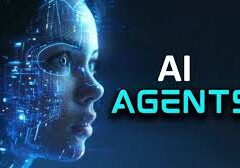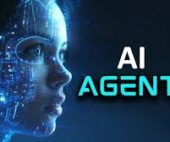Salesforce AI Research Introduces LaTRO: A Breakthrough in Enhancing Reasoning for Large Language Models
Large Language Models (LLMs) have revolutionized tasks such as answering questions, generating content, and assisting with workflows. However, they often struggle with advanced reasoning tasks like solving complex math problems, logical deduction, and structured data analysis. Salesforce AI Research has addressed this challenge by introducing LaTent Reasoning Optimization (LaTRO), a groundbreaking framework that enables LLMs to self-improve their reasoning capabilities during training.
The Need for Advanced Reasoning in LLMs
Reasoning—especially sequential, multi-step reasoning—is essential for tasks that require logical progression and problem-solving. While current models excel at simpler queries, they often fall short in tackling more complex tasks due to a reliance on external feedback mechanisms or runtime optimizations. Enhancing reasoning abilities is therefore critical to unlocking the full potential of LLMs across diverse applications, from advanced mathematics to real-time data analysis.
Existing techniques like Chain-of-Thought (CoT) prompting guide models to break problems into smaller steps, while methods such as Tree-of-Thought and Program-of-Thought explore multiple reasoning pathways. Although these techniques improve runtime performance, they don’t fundamentally enhance reasoning during the model’s training phase, limiting the scope of improvement.
Salesforce AI Research Introduces LaTRO: A Self-Rewarding Framework
LaTRO shifts the paradigm by transforming reasoning into a training-level optimization problem. It introduces a self-rewarding mechanism that allows models to evaluate and refine their reasoning pathways without relying on external feedback or supervised fine-tuning. This intrinsic approach fosters continual improvement and empowers models to solve complex tasks more effectively.
How LaTRO Works
LaTRO’s methodology centers on sampling reasoning paths from a latent distribution and optimizing these paths using variational techniques. Here’s how it works:
- Sampling Reasoning Paths: For each input, the model generates multiple reasoning paths.
- Self-Evaluation: Each path is assessed based on its likelihood of producing a correct output.
- Optimization: The model adjusts its parameters to prioritize paths with higher success rates, reinforcing better reasoning strategies.
This self-rewarding cycle ensures that the model continuously refines its reasoning capabilities during training. Unlike traditional methods, LaTRO’s framework operates autonomously, without the need for external reward models or costly supervised feedback loops.
Key Benefits of LaTRO
- Training-Time Optimization: By enhancing reasoning at the training phase, LaTRO reduces computational demands during inference, making it a resource-efficient solution.
- Improved Performance: LaTRO demonstrated significant gains in reasoning accuracy across benchmarks, including a 12.5% improvement in zero-shot accuracy on the GSM8K dataset.
- Autonomous Self-Improvement: The self-rewarding mechanism allows models to evolve independently, enabling more robust problem-solving without external input.
Performance Highlights
LaTRO’s effectiveness has been validated across various datasets and models:
- GSM8K (Mathematics Reasoning): LaTRO achieved a 67.3% zero-shot accuracy with Mistral-7B models, compared to 47.8% for baseline models. With self-consistency testing, this accuracy rose to 90.5% for Phi-3.5 models.
- ARC-Challenge (Logical Reasoning): LaTRO consistently outperformed both base and fine-tuned models, demonstrating superior logical reasoning capabilities.
- Resource Efficiency: By optimizing reasoning paths during training, LaTRO reduces reliance on runtime-intensive methods, enabling faster and more efficient inference.
Applications and Implications
LaTRO’s ability to foster logical coherence and structured reasoning has far-reaching applications in fields requiring robust problem-solving:
- Education: Assisting with step-by-step solutions to complex math and science problems.
- Healthcare: Analyzing patient data and suggesting treatment pathways.
- Finance: Conducting advanced data analysis for fraud detection and risk assessment.
By enabling LLMs to autonomously refine their reasoning processes, LaTRO brings AI closer to achieving human-like cognitive abilities.
The Future of AI with LaTRO
LaTRO sets a new benchmark in AI research by demonstrating that reasoning can be optimized during training, not just at runtime. This advancement by Salesforce AI Research highlights the potential for self-evolving AI models that can independently improve their problem-solving capabilities.
Salesforce AI Research Introduces LaTRO
As the field of AI progresses, frameworks like LaTRO pave the way for more autonomous, intelligent systems capable of navigating complex reasoning tasks across industries. LaTRO represents a significant leap forward, moving AI closer to achieving true autonomous reasoning.
🔔🔔 Follow us on LinkedIn 🔔🔔












